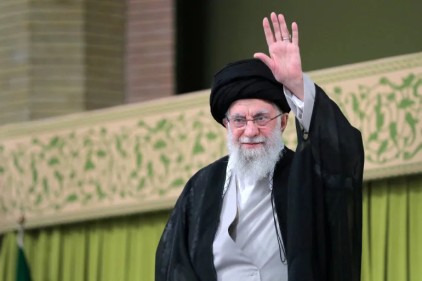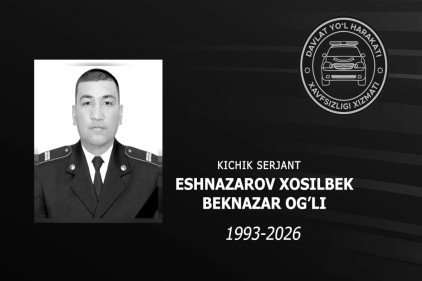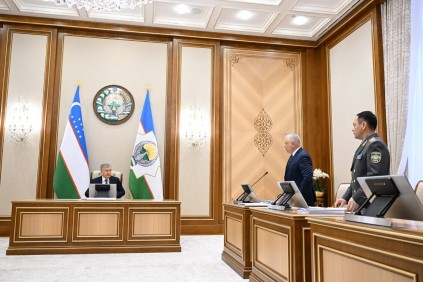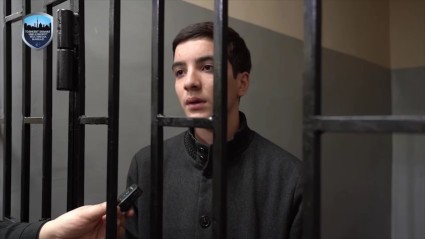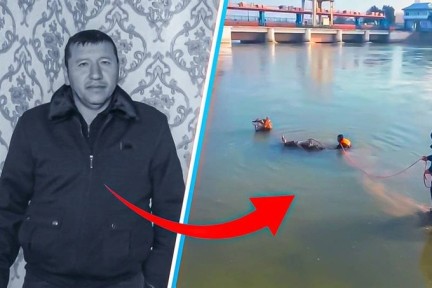On November 6, during the European Economy Days of the, the President's WTO Envoy, Azizbek Urunov, spoke about the difficulties in the process of Uzbekistan's accession to the World Trade Organization.
The process of joining WTO "is a big challenge in itself, because sometimes long-standing WTO members lose track of how difficult this process is," he said.
"Therefore, frankly speaking, in terms of negotiations, it is a little easier to negotiate with newly acceded countries, since they have not yet forgotten how difficult this process is. Sometimes we get the feeling that even in our bilateral negotiations, some developed countries demand the same conditions from developing countries or least developed countries. From the point of view of the provisions of the WTO agreements, developed countries should help developing countries and least developed countries in terms of supporting their economic growth," Azizbek Urunov said.
Azizbek Urunov believes that this situation is "a little unfair, because you can't treat developing countries the same way as developed countries."
“Sometimes it is very difficult in bilateral negotiations because there are provisions of the WTO agreements, such as Article 18 of the GATT (General Agreement on Tariffs and Trade), which states that developing countries should be able to support their economic development, industrial development, and so on. But some countries continue to demand the same level of market access and liberalization requirements from applicant countries as if these developing countries were on the same level as developed countries,” he said.
Azizbek Urunov added that one of the key problems in the WTO today is non-tariff measures.
“When the WTO was created, one of the key principles established by its members was to regulate trade through tariff measures, not non-tariff measures. But if you look at the development of the situation over the past 30 years, you can see that most countries have indeed liberalized their tariff measures, but non-tariff measures are now complicating trade between countries. This is one of the key challenges that the WTO faces. Some countries claim that they have free trade or market access within the framework of tariff measures, but if you look at non-tariff measures, most of them are restrictive measures that prevent countries from developing trade,” the special representative of the president said.
According to him, non-tariff measures are becoming one of the biggest problems for countries.
“Sometimes we see that many foreigners come to Uzbekistan and enjoy our fruits and vegetables, but as soon as it comes to exporting these products, non-tariff barriers immediately arise, and we are told that we need to comply with this or that requirement. This continues to hinder the improvement of trade relations between countries. Therefore, within the WTO, when we analyze such situations, we need to think about how to level the playing field in order to follow the key principles that were laid down when the WTO was created in 1995,” he said.
After the panel session, Azizbek Urunov answered journalists’ questions about non-tariff restrictions.
“We are not a WTO member. These are not my words, here we are talking about changes over the 30 years of the WTO. When the organization was created, one of the main principles was to regulate trade by tariff measures. Indeed, tariff measures were much more liberalized. At the same time, due to the fact that many countries began to introduce their requirements for non-tariff measures, this in many cases prevents the principle of free trade from working. I talked about this. Uzbekistan is also actively implementing reforms in its non-tariff measures,” he specified.
In his opinion, there is a demand for reforms of the World Trade Organization. “Trends are changing all over the world. Electronic commerce is actively developing all over the world. From this point of view, with the change of the era, there should be corresponding reforms in the world trading system,” he said.
Azizbek Urunov added that upon joining the WTO, each country, based on its economic interests, will have the opportunity to protect enterprises, but it will be temporary.
“As a rule, this opportunity is temporary - for 1, 2, 3, 4 years. From this point of view, we have developed three bills on trade measures, and today we are at the stage of submitting them to the government. These are bills on anti-dumping measures, protective measures, and compensatory measures. If subsidies are applied when exporting goods to Uzbekistan, then we can take trade measures against subsidies,” he said.
Azizbek Urunov highlighted that Uzbekistan recently successfully completed bilateral negotiations with the United States.
"I hope that this will give impetus to accelerate bilateral negotiations with the remaining countries. We have a few countries left. We have already completed the process with most of the countries with which we were supposed to negotiate. Negotiations with 21 countries have already been completed. We have several countries left to complete, and we plan to join the WTO in 2026," he said.
According to him, Uzbekistan will have to complete negotiations with the European Union, China, Russia, Great Britain, Switzerland and other countries.





